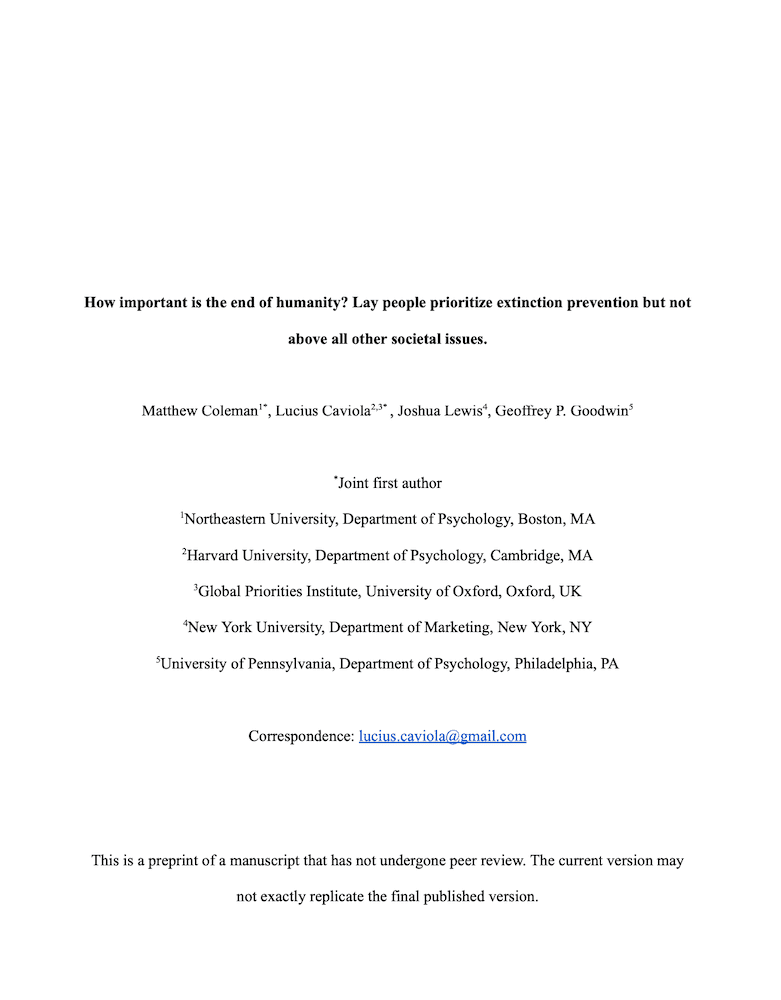Beliefs about the end of humanity: How bad, likely, and important is human extinction?
Matthew Coleman (Northeastern University), Lucius Caviola (Global Priorities Institute, University of Oxford), Joshua Lewis (New York University) and Geoffrey Goodwin (University of Pennsylvania)
GPI Working Paper No. 1-2024
Human extinction would mean the end of humanity’s achievements, culture, and future potential. According to some ethical views, this would be a terrible outcome. But how do people think about human extinction? And how much do they prioritize preventing extinction over other societal issues? Across five empirical studies (N = 2,147; U.S. and China) we find that people consider extinction prevention a societal priority and deserving of greatly increased societal resources. However, despite estimating the likelihood of human extinction to be 5% this century (U.S. median), people believe that the chances would need to be around 30% for it to be the very highest priority. In line with this, people consider extinction prevention to be only one among several important societal issues. People’s judgments about the relative importance of extinction prevention appear relatively fixed and hard to change by reason-based interventions.
Other working papers
Tiny probabilities and the value of the far future – Petra Kosonen (Population Wellbeing Initiative, University of Texas at Austin)
Morally speaking, what matters the most is the far future – at least according to Longtermism. The reason why the far future is of utmost importance is that our acts’ expected influence on the value of the world is mainly determined by their consequences in the far future. The case for Longtermism is straightforward: Given the enormous number of people who might exist in the far future, even a tiny probability of affecting how the far future goes outweighs the importance of our acts’ consequences…
In Defence of Moderation – Jacob Barrett (Vanderbilt University)
A decision theory is fanatical if it says that, for any sure thing of getting some finite amount of value, it would always be better to almost certainly get nothing while having some tiny probability (no matter how small) of getting sufficiently more finite value. Fanaticism is extremely counterintuitive; common sense requires a more moderate view. However, a recent slew of arguments purport to vindicate it, claiming that moderate alternatives to fanaticism are sometimes similarly counterintuitive, face a powerful continuum argument…
Maximal cluelessness – Andreas Mogensen (Global Priorities Institute, Oxford University)
I argue that many of the priority rankings that have been proposed by effective altruists seem to be in tension with apparently reasonable assumptions about the rational pursuit of our aims in the face of uncertainty. The particular issue on which I focus arises from recognition of the overwhelming importance…

